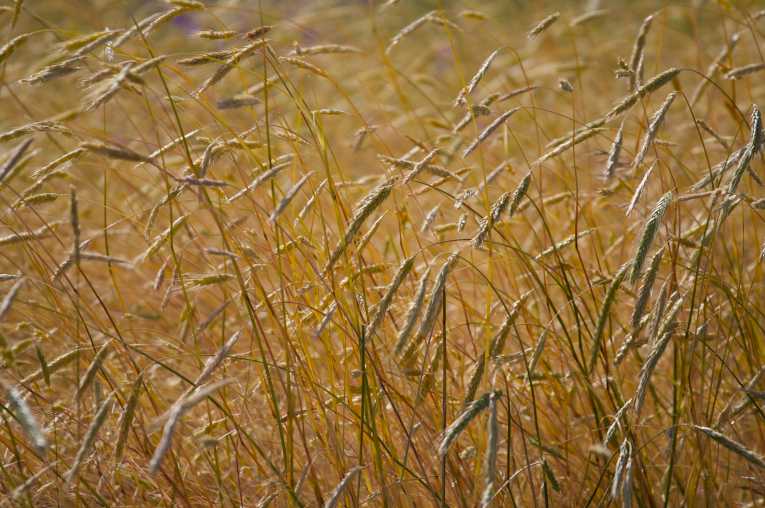The National Farmer's Union says it expects the UK's wheat harvest to drop by at least 15% this year, blaming drought conditions in the early part of 2011.
Surveying union members in England and Wales in May and early June, the NFU found the yield of wheat and oilseed rape is significantly down on its five year average. There have been very poor growing conditions in the east of the country meaning the crop is down 14% on 2010 at 6.5 tonnes per hectare, its lowest rate since the 1980s. With ongoing drought conditions predicted for the area, production could be down on the five year average by around two million tonnes to below 12 million tonnes.
Ian Backhouse from the NFU blames poor growing conditions since winter. "With the East of England experiencing its lowest rainfall for the first half of the year in over 100 years, farmers are clearly concerned about the impact on the ground of this abnormally dry spring".
The drought conditions were formalised by the Environment Agency this week and cover Lincolnshire, Cambridgeshire, parts of Bedfordshire, Northamptonshire and western Norfolk. Spring has been characterised by prolonged periods of hot, dry weather. Heavy, thundery showers over the past seven days have had benefits in some areas, but not all. Southeast England has had 30% of its average monthly rainfall in the course of a week, but the showers have been localised. Wales, the southwest and east England have seen 11 - 14% of the average June rainfall while central and northern England have seen 4 to 6 % of their monthly rainfall.
Ian Backhouse fears the showers will have little impact on crops.
"There is a vast range of tonnage prices and with the recent rainfall we fear the damage has already been done. Although not covered in the survey, it's likely that barley is most likely to be affected by the weather in terms of quality."
Heavy rainfall on top of dry land can potentially cause as many issues as drought. Torrential showers can lead to soil erosion. With low river flows a hangover of drought conditions, waterways may find it difficult to absorb pollutants flushed in by heavy downpours. Crops can be damaged.
The Environment Agency says it is working closely with farmers in affected areas. Over 100 farmers in the drought area are being told to stop water abstraction. Often used for irrigation the practice needs a licence and in periods of drought is stooped to protect water supplies. In Surrey, regulations may be brought in by the agency to enforce restrictions on spray irrigation by the end of the month.
The fear amongst consumer groups is that a low yield will have an impact on already high food prices. The cost of fruit between April and May increased by around 5% with inflation rates at a two year high of 4.5%. The cost of a loaf of bread has increased by 7% in a year.
Top Image Credit: © ET-DrP










